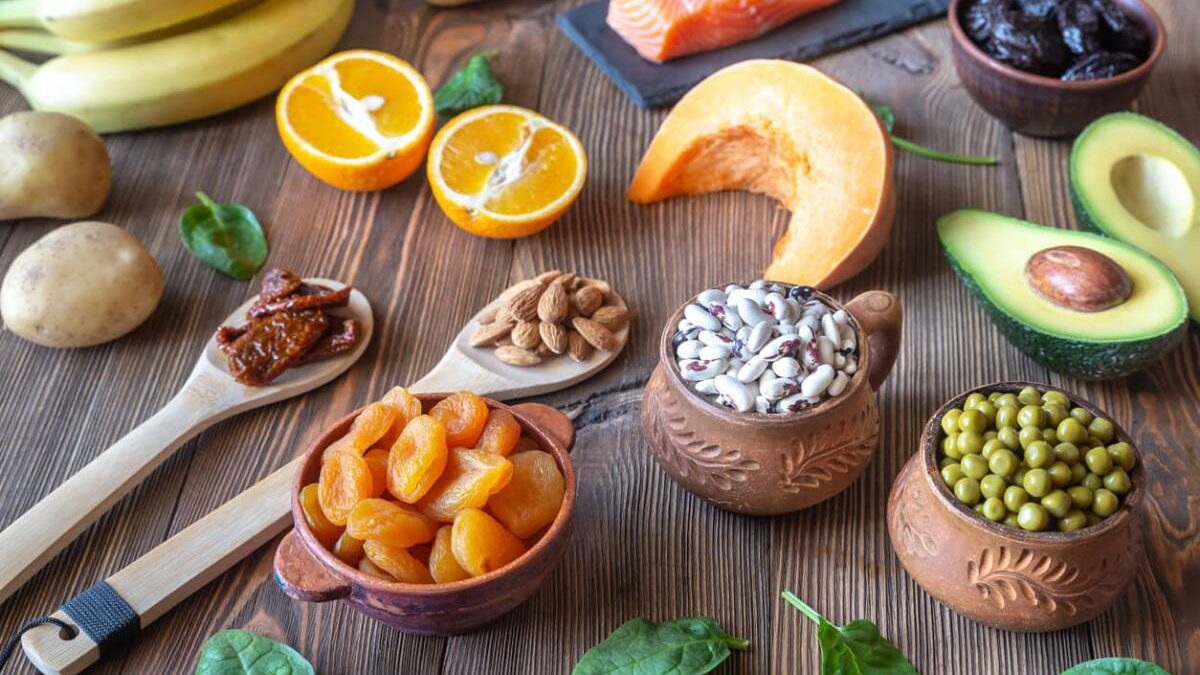Minerals with an electrical charge are known as electrolytes.
They’re necessary for survival and wellbeing because electrolytes stimulate cell action all across the body.
They aid hydration and energy production in the body. They’re also in charge of causing muscular contractions, such as those that keep your heart beating.
Electrolytes can be found in some foods, which means you can have them in your body without drinking any artificial drink.
Isn’t that amazing?
So, let’s find out all about electrolytes and the foods that contain them.
Table of Contents
What Are Electrolytes?
Electrolytes are minerals that are electrically charged. Fluids and electrolytes are required for your cells, muscles, and organs to function properly.
Electrolytes aid in maintaining the body’s fluid balance.
Electrolytes serve a variety of purposes in addition to fluid regulation.
They maintain the blood’s pH level and regulate the fluid level in blood plasma. They also transmit nerve signals from the muscles, heart, and nerve cells to other cells.
Electrolytes help build new tissue; they support blood clotting, which can keep your heart beating by electrically stimulating muscle contractions.
10 Foods That Replenish Electrolytes
Electrolytes are required for your body to operate correctly and support your overall health and well-being.
Let’s find out about the 10 foods that replenish electrolytes:
1: Electrolytes Infused Waters
Electrolyte mix drinks vary by brand, but they can fulfill the need of electrolytes in your body in a matter of seconds.
These fluids can be found at most supermarkets and sporting goods stores.
When choosing electrolyte-infused water, keep in mind that some contain a lot of sugar, so read the nutrition label carefully.
Some of the good brands for electrolyte mix drinks are:
- Liquid I.V. Hydration Multiplier.
- Dr. Price’s Electrolyte Mix.
- Ultima Replenisher Electrolyte Powder.
- Pedialyte Electrolyte Hydration Drink..
2: Meat and Poultry
Electrolytes can be obtained by eating white meat and poultry.
There is 349 mg of potassium and 1200 mg of sodium in 100g of white turkey meat.
Shellfish, beans and lentils, and hemp seeds are all excellent sources of zinc. Moreover, beef, and pork, are good sources of chloride.
3: Dairy
The electrolyte ‘calcium’ can be found in abundance in milk and yogurt.
One cup of milk has roughly 300 milligrams of calcium, while one cup of yogurt has about 450 milligrams. Cheese is also a good source of chloride.
All of them are great post-workout snacks for rehydrating electrolytes and increasing protein intake!
4: Celery
Celery is one of the best vegetables because it contains electrolytes (sodium, potassium, magnesium, calcium, phosphorus), vitamin A, vitamin K, vitamin C, etc.
Since celery is rich in so many nutrients, it helps you deal with constipation problems better.
Celery also reduces stress hormone levels and combats inflammation.
5: Spinach
Spinach is a phenomenal source of electrolytes, especially magnesium and calcium. Besides, micronutrients like vitamin A and vitamin K are also found in spinach.
A single cup of cooked spinach contains 73% magnesium and 24% calcium for an adult.
So, you can see why we call it one of the best foods that replenish electrolytes.
6: Fruit Juice
While electrolytes can be found in various juices, lemonade, orange, banana, and pomegranate juice stands out.
One cup of this fruit juice includes 533 mg of potassium, making it an excellent source of electrolytes.
If you want to increase your electrolyte consumption, stick to a 100% fruit juice cup to avoid options with added sugar.
7: Avocado
Avocados are more than fashionable since they are a fantastic source of potassium. Being one of the best sources of electrolytes, this fruit has become quite demanding.
There is 660 mg of potassium found in one regular avocado.
To feed and rehydrate after an exercise, choose 14 servings of avocado on a slice of bread.
8: Watermelon
Watermelons are a great source of electrolytes all year. For example, potassium is found in 320 mg in a medium-sized watermelon wedge.
Watermelon is an excellent pre-and post-workout snack!
After a workout, eat a cup or two of watermelon to replenish your energy and electrolyte levels.
9: Bananas
Bananas are often regarded as the king of all potassium-rich fruits and vegetables. Because of their high potassium content, bananas are an excellent supplier of electrolytes.
Potassium aids in muscle and blood pressure management.
The potassium content in a banana is 422 mg, which is impressive.
10: Coconut Water
One cup of coconut water has 350 milligrams of potassium or about 13% of your daily requirement of electrolytes.
Coconut water is a great way to get a rapid energy and electrolyte boost during or after a workout.
It also contains natural sugar, which helps replace energy resources depleted during physical activity.
Conclusion
An electrolyte imbalance can happen for various causes, but it’s most commonly associated with dehydration or excessive sweating.
Electrolyte imbalance can be avoided by eating a nutritious diet and drinking plenty of water.
So, include these foods in your food chart today, and let us know how you felt after trying this electrolyte-infused diet.

